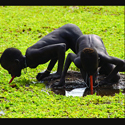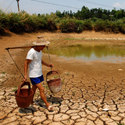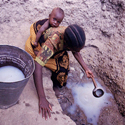Honduras
Honduras is the knee of Central America, bordered to the south by Nicaragua and El Salvador, and to the west by Guatemala. In the rural regions, nearly 63% of the population is considered extremely poor, living on less than a dollar a day.
Families often work as subsistence farmers├óÔé¼ÔÇØgrowing only enough to feed their own families, and leaving very little money for other purchases.
In 1998 Honduras was devastated by Hurricane Mitch. The tiny country was the hardest hit by Mitch├óÔé¼Ôäós rampage. Mitch was followed by three days of rain that caused landslides and floods, burying towns and killing thousands of people. Many of the rural communities were devastated. The hurricane caused $58 million in damages and left 75% of the country without safe drinking water.
Reconstruction efforts are continuing. However, until they are complete, in these areas families are forced to rely on contaminated water supplies, and the prevalence of waterborne diseases like cholera is increasing. Mosquitoes that carry malaria and dengue fever are also a problem.
In addition to the health issues it creates, poor access to water also causes overall development to stagnate. Many women and children in the rural areas of Honduras spend up to six hours each day simply fetching water and carrying it home on their heads.




